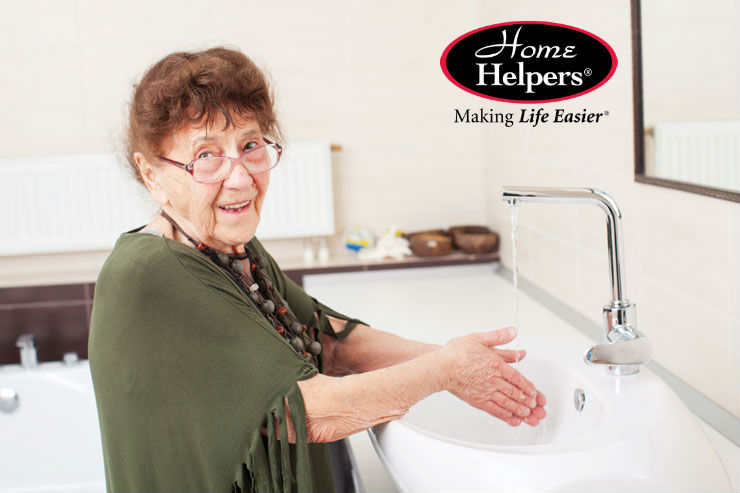As we age, routine tasks become more difficult. For many seniors, good personal hygiene can be especially challenging and may require some assistance. If you notice it becoming a problem, it’s best to address the issue right away to avoid potential health problems that can develop as a result of poor personal hygiene. The task of figuring out a solution often falls to family members, so it’s very helpful to think ahead and make a plan before the problem really presents itself. Here are some tips to help you help the senior in your life!
- Talk openly
It can be a degrading experience for seniors to accept assistance with bathing and grooming. This may cause them to become stubborn and unwilling to cooperate with showers and baths, etc. If this is the case, speak with their physician and ask for a written doctor’s order that states how often they need to bathe. Seeing it as a prescription may help them take it more seriously. Most seniors want to follow their doctor’s instructions, so don’t hesitate to ask the doctor to get involved.
- Ask Questions
Ask your elderly loved one who they would like to help them bathe or shower. You might ask if they would prefer a family member do it, or perhaps a nurse or other professional come to the house to assist. You should also ask if they have a preference for the sex of the person helping them. These questions will help them feel like they have more control of their personal care.
- Try not to deviate from familiar routines.
This might sound overly simple, but performing personal care at the time of day the senior has always done these things can be very helpful. If they like showering at night, help them stick with that. Check to see which hygiene products are familiar with them and make sure they are on hand. Favorite shampoos and soaps can be comforting.
- Safety first!
Always make sure there are safety measures in place, such as handrails, shower chairs or anti-slip covers in the tub. You may also want to wear a waterproof apron to keep you from getting wet as you assist.
- Keep hygiene products handy.
Gathering supplies and having them at arm’s reach can be very helpful. You don’t want to be in the middle of a shower only to discover that the shampoo is missing or you’re out of soap. Make sure you bring towels and washcloths with you and have everything ready to use.
- Protect their modesty.
Many seniors will feel embarrassed to have someone else assisting them with hygiene tasks. Help them feel more comfortable by giving them a towel to cover their body. If possible, only expose the area you are working on. This will go a long way in helping them to feel more in control. Allow them to help you clean private areas if possible.
- Don’t neglect the “hidden” areas.
Bathing under folds of skin, wrinkles, under breasts, etc., is crucial. These areas can easily collect bacteria which cause skin infections. Elderly people are often slower to heal, and these open sores can easily become dangerous wounds requiring immediate medical care.
- Rinse well.
It helps to have a hand-held shower when rinsing the soap off. Seniors can hold the shower head and help position themselves, so you can thoroughly rinse.
- Apply body lotion or moisturizer.
When applying any lotions or creams, use a gentle patting motion, rather than rubbing. Seniors have delicate skin and may even find it very relaxing to have a gentle massage as you apply lotions.
- Don’t bathe every day.
It might sound odd to you, but too much bathing can be very drying to the delicate skin of the elderly. To prevent skin dryness and irritation, only bathe every few days unless they need it. Also, it can be a tiring process, both for them and for you.
Remember that seniors have other hygiene needs such as dental work, hairdressing, shaving and eye care. They should see a dentist twice a year to check for gum disease. If they are wearing dentures, they need to have the dentist check the fit regularly. Gum disease can lead to other life-threatening conditions, so always take it seriously!
For more information on helping the senior in your life with personal care routines, please contact us today!

